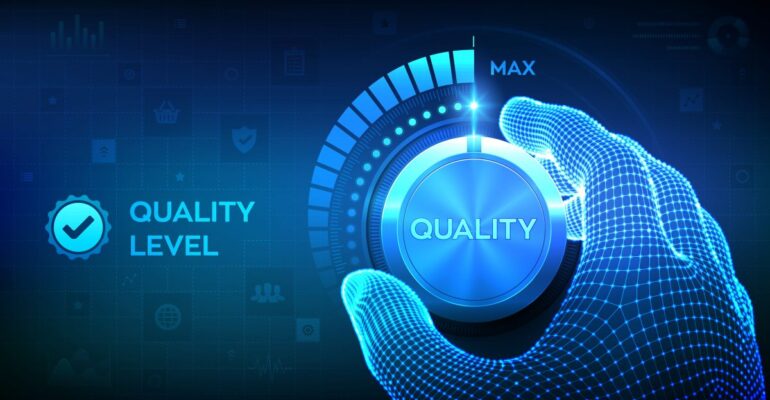What is the Purpose of a Quality Management System?
November 8, 2018 2024-04-25 6:18What is the Purpose of a Quality Management System?

What is the Purpose of a Quality Management System?
What is a quality management system?
A Quality Management System (QMS) is an organizational framework designed to consistently meet or surpass customer expectations and regulatory standards, with a primary focus on enhancing customer satisfaction, fostering continuous improvement, and upholding superior product or service quality.
LUBM has explained, What Is Quality Management?
Understanding a top-quality Management System
As per Business Week Magazine, “QMS may be a collection of organizational structure, processes, resources, and procedures that are utilized to live up to the standard of service and satisfaction level of the purchasers.”
The primary role of a top-quality management system is to sustain organizational systems to ensure superior quality. Along with this, a QMS also ensures optimized production throughout the great phase.
These days, quality isn’t hard to work out. The purchasers are smart enough to calculate the standard of the products and services companies are rendering. So it becomes an absolute necessity to adopt quality management throughout the lifecycle of the services.
Here is a detailed overview that justifies why a QMS is indispensable
The list of purposes a top-quality management system serves is exhausting. It delivers head-to-toe benefits to organizations while helping them cut business expenses. The needs for a top-quality management system are:
Enhanced Business Processes
A business process is the core factor of each business venture. Not only does it help in revenue generation, but it also assists a corporation in sustaining itself within the market. A corporation that delivers quality services and products is on a sure-shot path to business success. By having an efficient QMS on your side, you’ll upgrade the processes without raising prices.
Enhancing any business process is all about the investment of cash and a workforce. However, a top-quality management system delivers equivalent benefits without breaking the bank. All cutting-edge business ventures around the globe are relying only on QMS to leverage their service levels.
Eliminated Extra Costs
Someone wisely said that “preventing extra costs is adequate to profit generation”, and it’s completely true. If your company can manage its expenses while spending less, then that’s the simplest thing. You do not need to put in any effort. Still, your organization is going to be ready to make an honest sum. And that’s what a top-quality management system is all about!
Justified Reasons behind the corporate Losses
Business is all about profit and loss! What if you get an in-depth reason for why things aren’t going as expected? This may help you overcome the shortage, right? Well, this is often the main purpose of a quality management system. Therefore, a QMS allows organizations to explore their bleeding edges and find solutions to embrace them.
Once a business is capable of understanding the “why’s and how’s,” it’ll automatically hop on track. Thus, things will become more feasible and in check.
Improved Staff Engagement
A business venture is nothing without its workforce. The staff that’s not appropriately engaged won’t deliver the expected results. A top-quality management system is the best practice that helps improve staff engagement. However, right after engaging the staff, a corporation will encounter sudden growth because the workforce is functioning toward a goal.
QMS also assists companies in building advanced tactical strategies for getting the simplest out of their employees.
Better Customer Resolution
It’s not news that customers are the sovereigns of the markets. A corporation has got to make quality policies, taking into consideration what their customers like. However, there’s a good chance that clients will have issues with the services. Thus, it’s the responsibility of the corporation to deal with the difficulty in a perfect and convenient way.
The design of quality management provides enterprises with multiple ways to resolve customer’s concerns. A corporation that has mastered the skill of customer resolution is on the proper track toward gaining business success.
Elements of an Effective Quality Management System
A quality management system delivers its true purpose if it has all the essential elements. From the basic definition, one can easily understand that QMS is all about quality and customer satisfaction. Therefore, customer focus becomes an integral part. To achieve customer satisfaction, a QMS should have the following elements:
- Quality-designed policies
- Processes with their descriptions
- Resources utilized in the process
- service or product the company offers
- The scope of future improvement
- Comprehensive records in the documented form
- Approaches for process correction and data-based analysis
A quality management system that contains all of these elements benefits the organization in tremendous ways. Therefore, all business ventures should ensure that their QMS is up-to-date and complies with modern regulatory requirements.
What types of companies require a QMS?
Almost every business organization requires a quality management system for its survival. At the end of the day, all businesses want to generate more profit and satisfy customers. It is only possible if the company has implemented a QMS.
Subsequently, from manufacturing to the online portal industry, every process of these ventures is dependent on QMS for successful completion.
Conclusion
In the end, people may use various words to speak about quality management systems (QMS), but their core purpose remains equivalent. QMS is sort of a crucial compass for achieving the results you aim for and improving how you run your business.
What’s more, integrating a QMS has a profound impact on every facet of a company’s performance. It can turn your processes into more efficient, adaptable, and comprehensive systems. This not only helps hamper costs but also exposes avenues for enhancing the standard of your products and services across the board.


